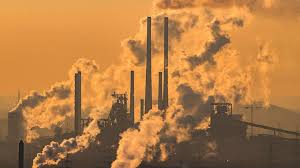Richard Richels et al.
The emergence of COVID-19 suggests that global warming may present an even graver threat to human welfare than many recognize. As indicated in the scientific literature, not only could the current warming of our planet increase the likelihood of an air-borne pandemic such as COVID-19; it could also damage our health and welfare.
Let us be clear: We are not talking here about future warming, which is already of great concern. We are talking about the effects of a rise of 1oC that we have already experienced. Even with such “modest” warming, a stunning barrage of extreme events have happened in recent years, many of which cannot be explained in the absence of climate change.
How can climate change increase the likelihood of a pandemic? Epidemiologists have been cautioning for several years that it wasn’t a matter of whether a novel coronavirus pandemic would strike, but when. It is well established that viruses jumping from the wild to humans are the major source of this threat, and we know that the degradation and decline of forests weakens the natural barriers protecting us from the source of infection. Shrinking forests arise not only from deforestation caused by population growth and urbanization; global warming also affects forest health.
Unfortunately, the genie is out of the bottle. Although we may not be able to undo the damage caused by deforestation to date, we may be able to reduce disease transmission by restoring the natural barriers between humans and wildlife, and discouraging their further erosion. This would require unprecedented land management programs, with particular focus on halting the devastation of tropical rain forests.
And does warming also amplify a pandemic’s toll on human welfare? The answer is yes, and the effect is greatest during the months when extreme climate-related events tend to be most widespread.
Imagine what would happen if, in the midst of a virus epidemic, we were to experience a hurricane of the ferocity of a Dorian stalled directly over a major metropolitan area? Or what if we were to suffer an extended record-shattering heatwave, such as the one that hit Europe in the summer of 2019? How would we deal with the associated blackouts and brownouts, and keep people safe from COVID-19 as they tried to find refuge at crowded parks and beaches? For those fortunate enough to survive such events, social distancing to slow the virus spread would not be an option.
These are not idle threats. As this piece was being written, India and Bangladesh, while struggling with a COVID-19 outbreak, were moving hundreds of thousands of people into crowded shelters to avoid being hit by a strong cyclone. On the other side of the world, the Red Cross, in anticipation of a “busy” Atlantic hurricane season, began considering hotel rooms instead of mass shelters, and developed plans for additional screening, masks, distance between cots, cleaning and disinfecting.
Hurricanes offer but one example of how to plan for the inevitable collision of extreme climate events and novel viruses. By modifying current climate change adaptation strategies, in light of what we have learned about pandemics, we can reduce avoidable breaches in pandemic containment.
Unfortunately, if efforts to contain transmission among humans were to falter in the midst of a major hurricane, heatwave or flood, one could easily imagine a renewed series of outbreaks. Recall that COVID-19 began with a single individual and rapidly spread across the entire planet. A strategy based heavily on containment, with the inevitable risk of a lapse, can be compromised by extreme climate events.
Ultimately, we must reduce greenhouse gas emissions, the root cause of the rising number of extreme climate events. Of course, the benefits of these actions extend far beyond reducing the damage from air-borne pandemics. They reduce a wide array of additional consequences associated with a warming planet — sea level rise, droughts, famines and mosquito-borne diseases, and the direct toll of heatwaves and severe storms on human health.
Today’s primary focus is on pandemics and their threat to human health and welfare. Many factors aided the emergence COVID-19. But a warming planet has accelerated the degradation of forests and played a role in spreading contagion from wildlife to humans. And the rising temperatures we’ve already experienced present a substantial challenge to containment.
Until recently, many believed that the really serious consequences of an overheated planet lay decades in the future. Maybe not. The inextricable connections between global warming and pandemics are ignored at our peril.
(Richard Richels directed climate change research at the Electric Power Research Institute (EPRI). Henry Jacoby is the William F. Pounds Professor of Management, Emeritus in the M.I.T. Sloan School of Management. Gary Yohe is the Huffington Foundation Professor of Economics and Environmental Studies, Emeritus, at Wesleyan University in Connecticut. Ben Santer is an atmospheric scientist and a member of the U.S. National Academy of Sciences.)




